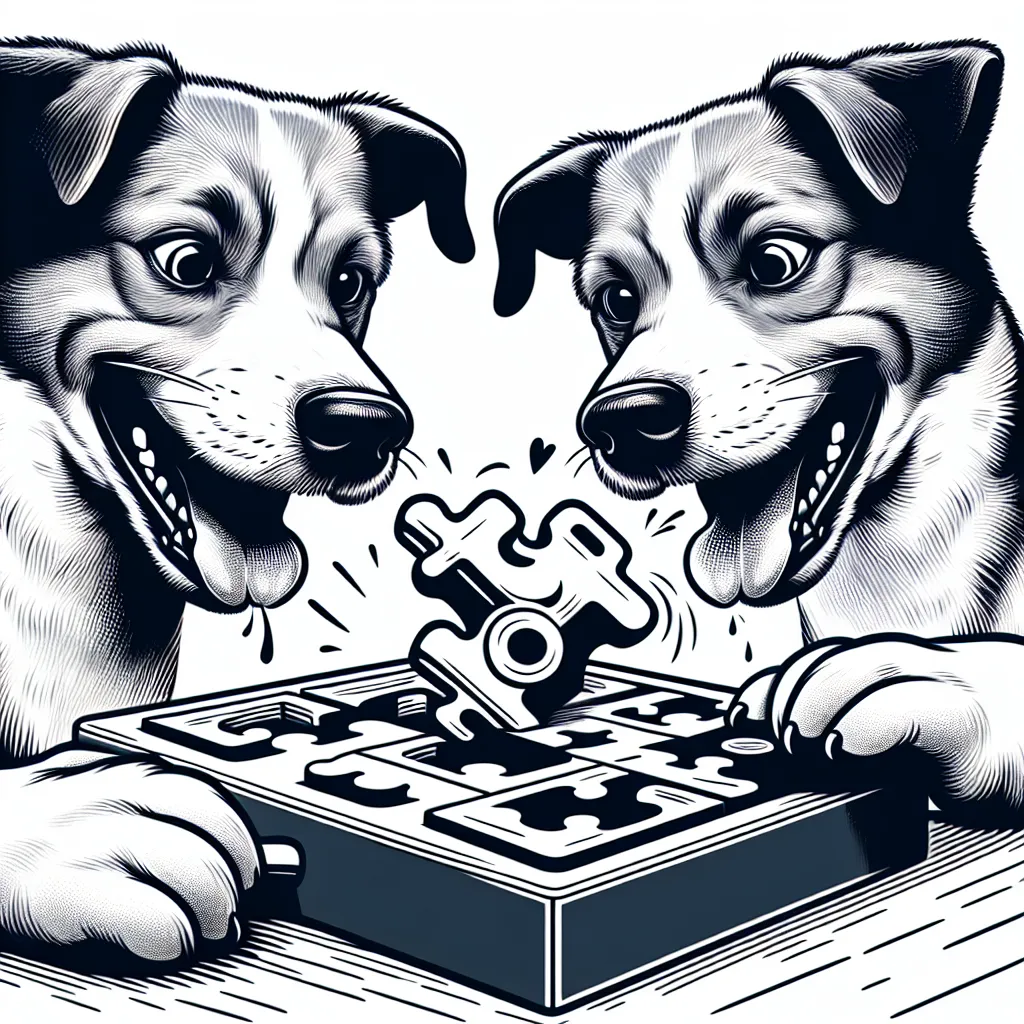Mental Stimulation and Cognitive Development for Dogs: The Power of Puzzle Toys
When it comes to providing mental stimulation and cognitive development for dogs, puzzle toys have proven to be a powerful tool. Dogs, much like humans, require mental exercise to keep their minds sharp and engaged. Puzzle toys offer a fun and interactive way to achieve this, tapping into a dog’s natural problem-solving instincts.
Engaging with puzzle toys requires dogs to use their cognitive skills to figure out how to access treats or toys hidden within the puzzle. This process helps to keep their minds active and alert, preventing boredom and potential destructive behaviors that can result from a lack of mental stimulation.
Additionally, the use of puzzle toys can help improve a dog’s focus and concentration. As they work to solve the puzzles, they learn to pay attention to details and use their senses to explore and interact with the toys. This can be particularly beneficial for puppies or high-energy dogs that may struggle with impulse control or staying focused on a task.
Introducing puzzle toys at an early age can also contribute to the overall cognitive development of dogs. Just as children benefit from educational toys, puppies can benefit from the mental challenges posed by puzzle toys. This early mental stimulation can help lay the foundation for improved learning and problem-solving abilities as they grow.
In conclusion, the use of puzzle toys for dogs offers a range of benefits, with a particular focus on mental stimulation and cognitive development. By engaging their problem-solving skills and encouraging focus, puzzle toys play a valuable role in keeping dogs mentally active and healthy.
Reducing Anxiety and Boredom: How Puzzle Toys Can Benefit Your Dog’s Well-being
Dogs are intelligent and active animals that thrive on mental and physical stimulation. Addressing their cognitive needs is crucial for their overall well-being. Introducing puzzle toys to your dog’s routine can significantly reduce their anxiety and boredom, leading to a happier and healthier pet.
When a dog is left alone for extended periods, they can experience anxiety and boredom, leading to destructive behavior, excessive barking, or other negative habits. Puzzle toys provide mental stimulation and engage their problem-solving skills, keeping them occupied and mentally active. This can alleviate anxiety and boredom, promoting a more balanced and contented state of mind.
Engaging with puzzle toys mimics the natural hunting and foraging instincts of dogs, providing them with a sense of purpose and accomplishment. By using puzzle toys, dogs can expel their excess energy in a constructive manner, reducing the likelihood of developing behavioral issues associated with anxiety and boredom.
Furthermore, the mental challenge offered by puzzle toys can tire out a dog as effectively as physical exercise. A mentally stimulated dog is more likely to rest and relax, leading to a decrease in stress and anxiety levels. As a result, the use of puzzle toys can contribute to a more peaceful and relaxed pet.
In conclusion, incorporating puzzle toys into your dog’s routine can have a profound impact on their well-being. By reducing anxiety and boredom, these toys promote a healthier and more balanced lifestyle for your furry friend, keeping them mentally sharp, physically active, and emotionally content.
Enhancing Training and Bonding: The Role of Puzzle Toys in Dog-Owner Relationships
Utilizing puzzle toys for dogs can profoundly enhance the training process and strengthen the bond between dogs and their owners. These interactive toys provide mental stimulation, encourage problem-solving skills, and promote a sense of accomplishment, which are integral to a dog’s overall well-being.
When dogs engage with puzzle toys, they are actively using their brains to figure out how to access treats or toys hidden inside. This mental stimulation is incredibly beneficial, especially for high-energy or intelligent breeds that require constant mental challenges. As a result, puzzle toys can help reduce destructive behaviors born out of boredom or lack of mental stimulation.
From a training perspective, puzzle toys can be incorporated into obedience and behavioral training routines. By using these toys as rewards, dogs learn to associate positive behaviors with the opportunity to engage with their favorite puzzle toys, making the training process more enjoyable and effective. Additionally, the time spent interacting with puzzle toys provides opportunities for owners to reinforce commands and build a stronger communication and trust with their dogs.
Furthermore, the shared enjoyment of puzzle toys can strengthen the emotional bond between dogs and their owners. Involving dogs in interactive play builds a sense of teamwork and mutual understanding, leading to a more harmonious and fulfilling relationship. This shared activity can also provide a platform for quality time and bonding, ultimately deepening the emotional connection between dogs and their owners.
Overall, integrating puzzle toys into a dog’s routine not only enhances their mental and physical well-being but also plays a significant role in fostering a strong and loving relationship between dogs and their owners.

